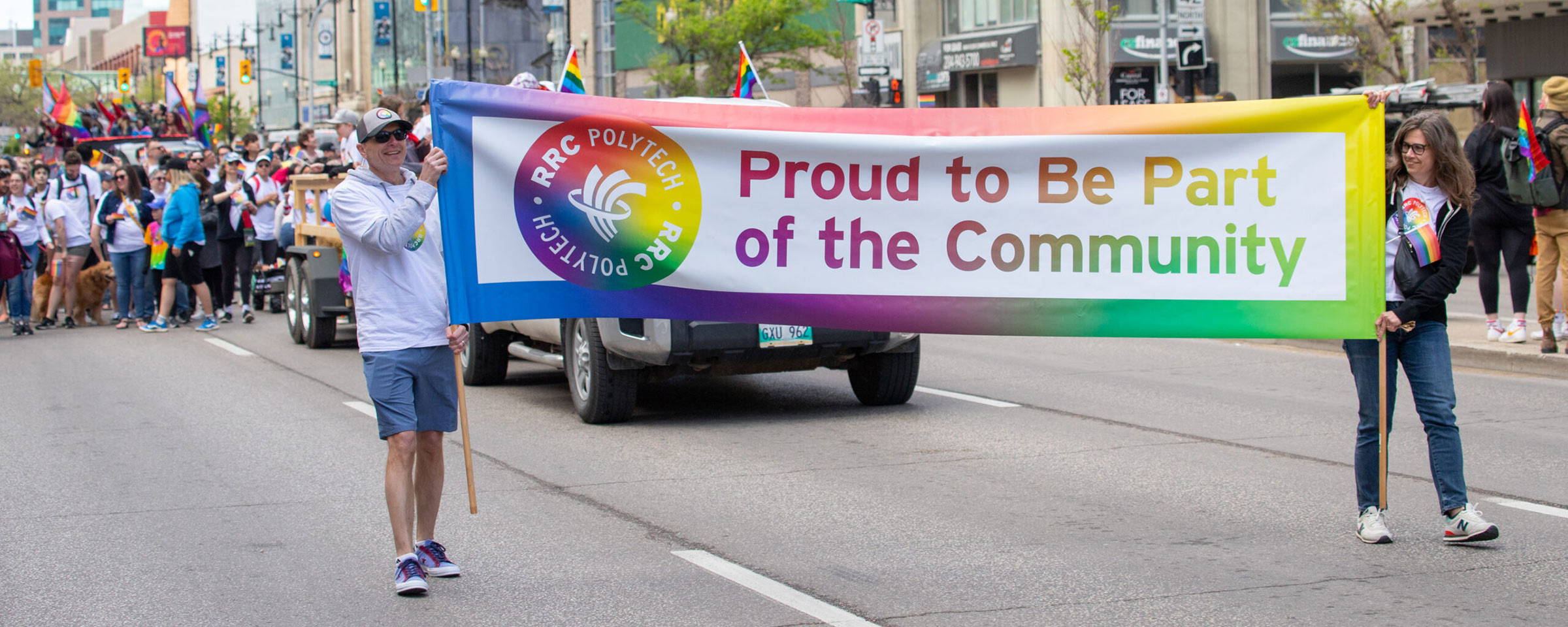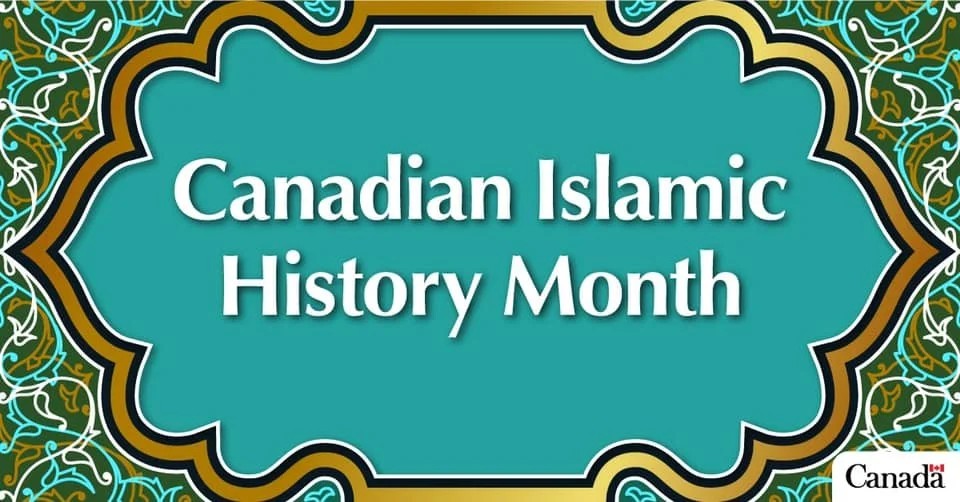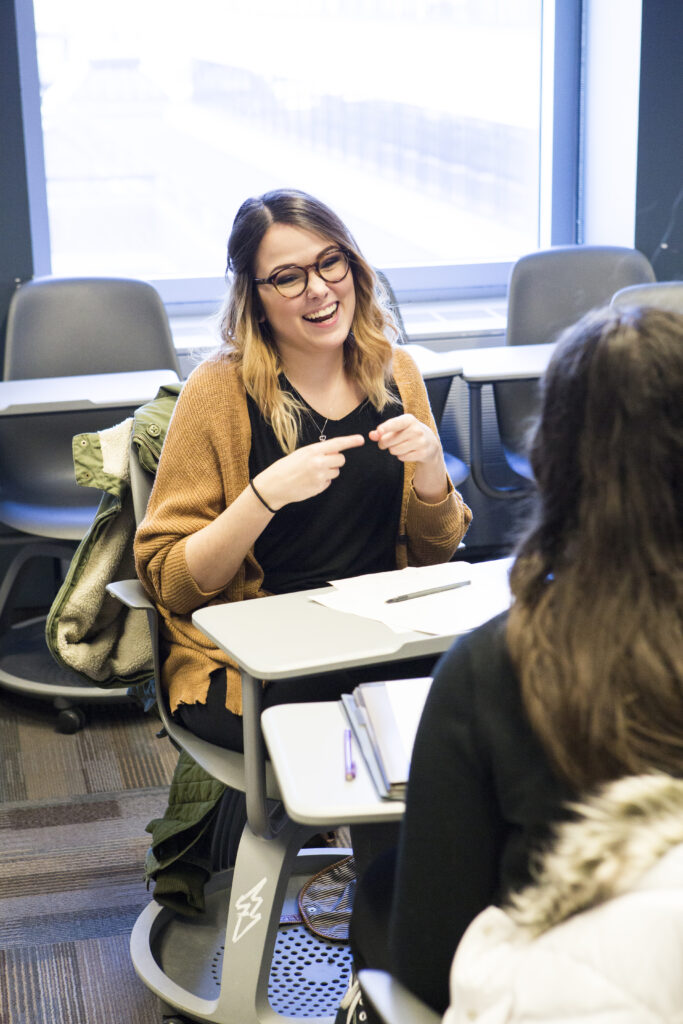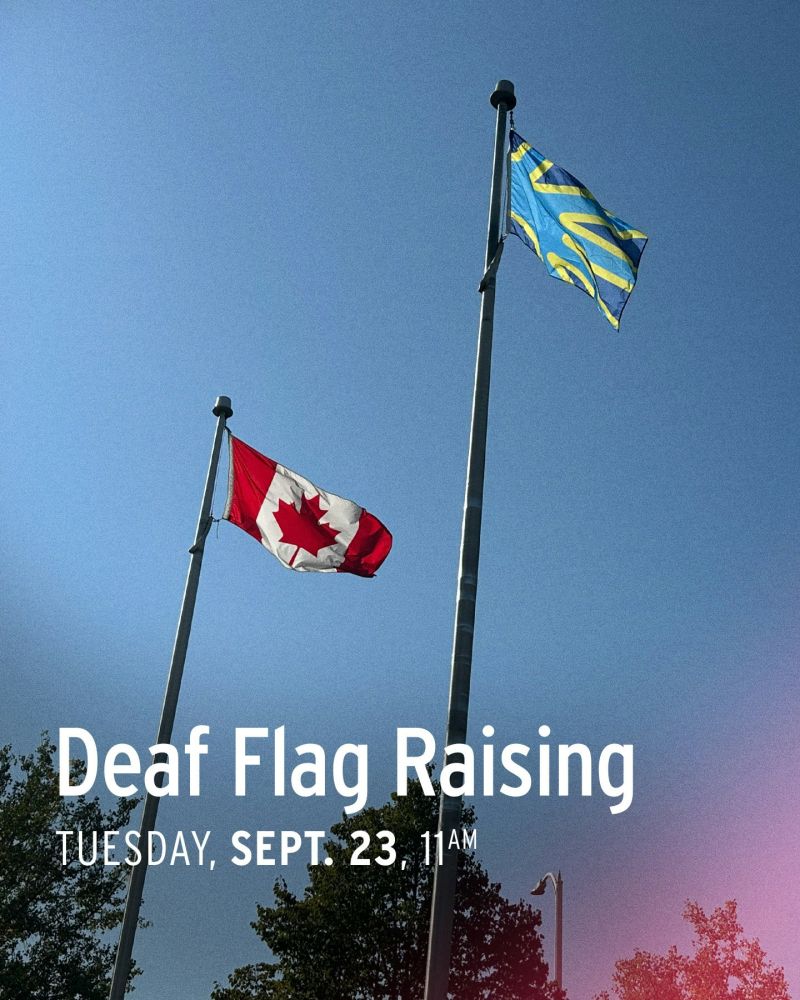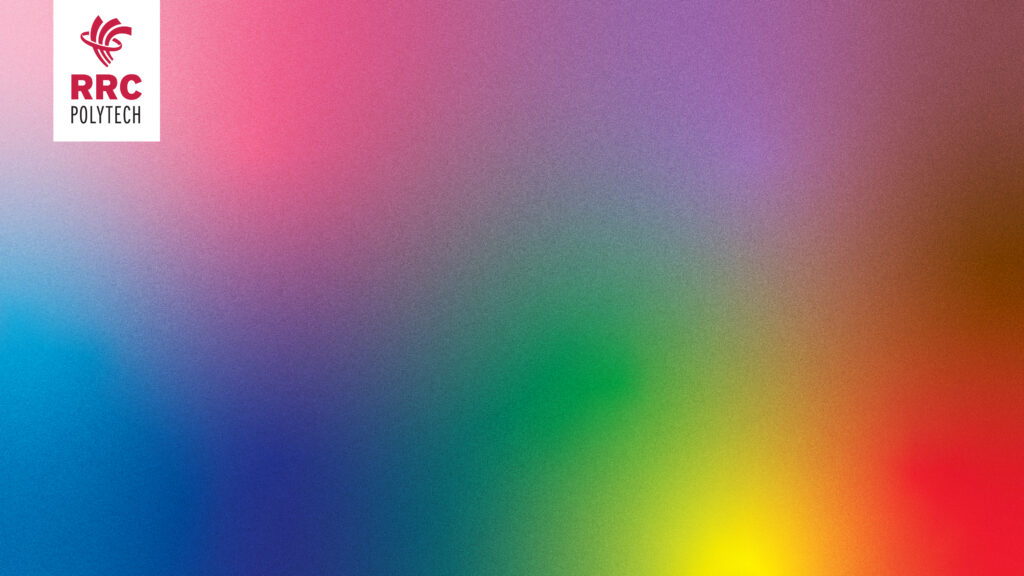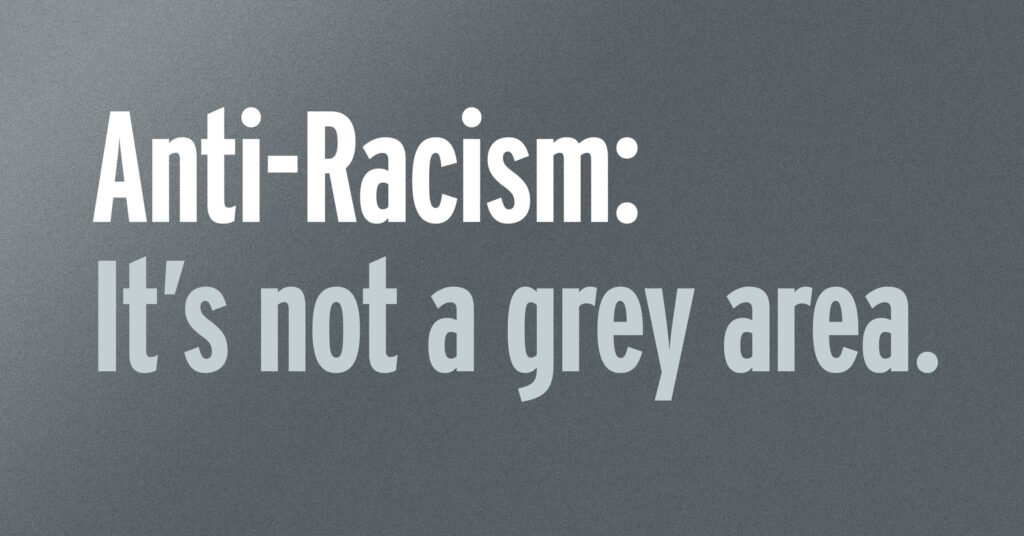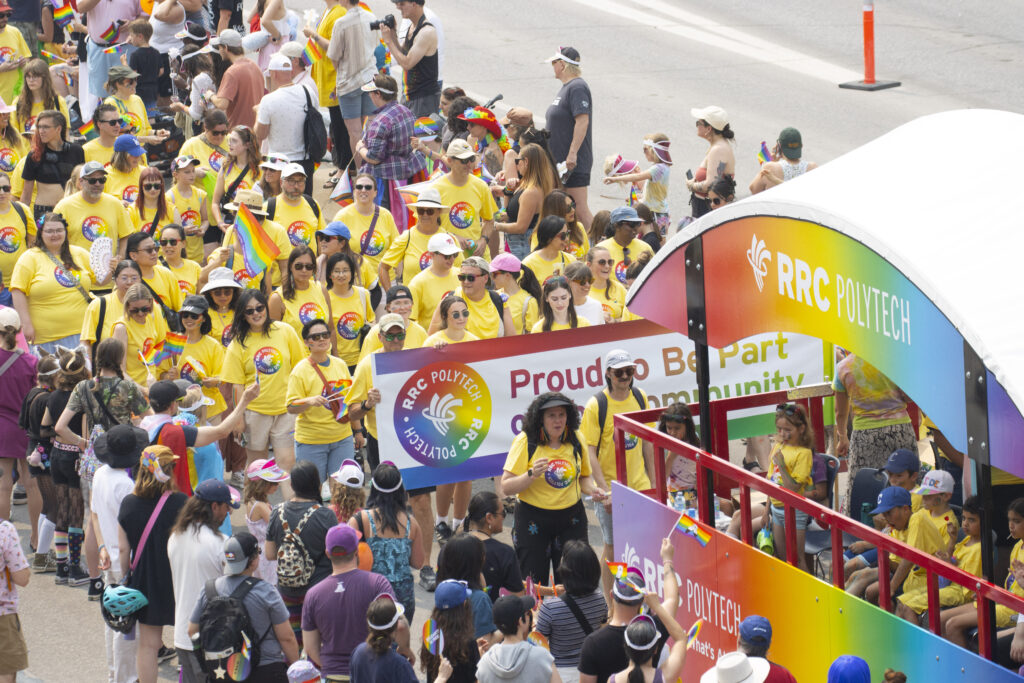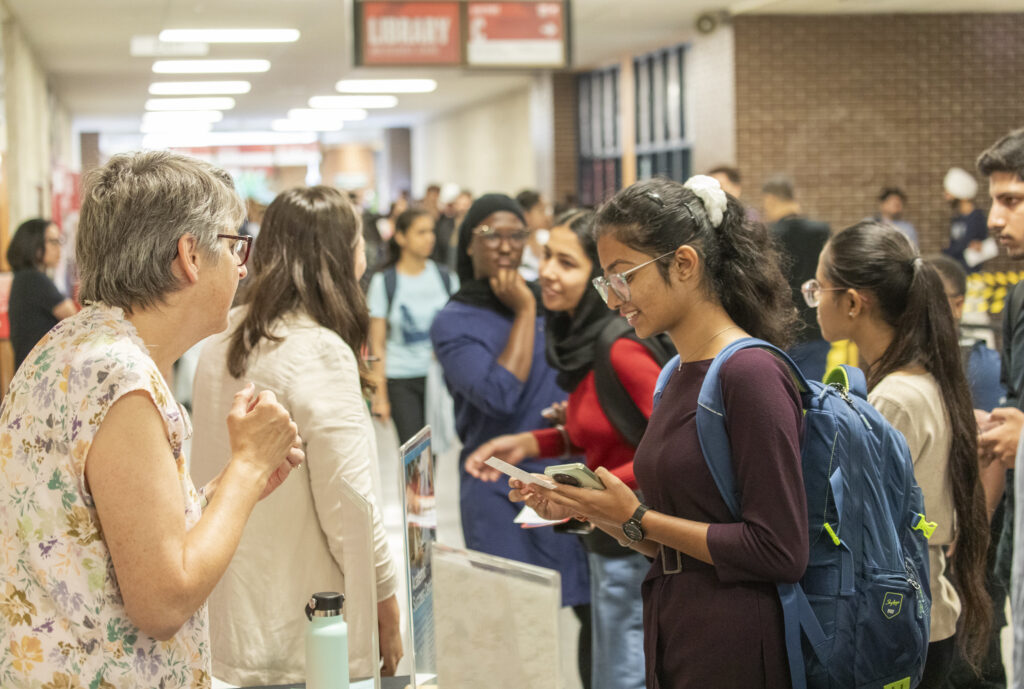October 11 – National Coming Out Day (NCOD)
Post compiled by Dr Obren Amiesimaka, Gender and Sexual Diversity Working Group Member at RRC Polytech. Thanks to our contributors for sharing their stories: Dr. Christine Watson, Justine Hawley and Logan Brunette.
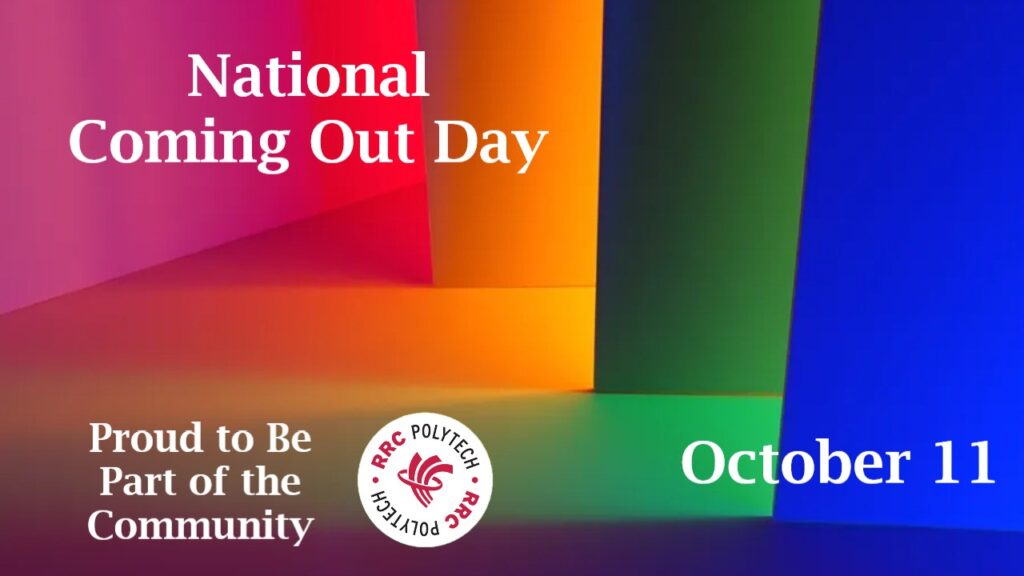
Observed on October 11 annually, National Coming Out Day (NCOD) is a day to celebrate coming out by 2SLGBTQIA+ folx. NCOD is a time to honour all who have come out, encourage those in the process of coming out and support folx who are yet to come out. NCOD highlights to society that 2SLGBTQIA+ folx have the right and freedom to live their full, true identities, openly and confidently, every day, every time and everywhere.
This year, we hear three voices speaking about the significance of coming out.
What does coming out mean to you?
- When I fell in love with my wife, I didn’t expect to fall in love with a woman in my 40s after a decade-long marriage to a man. So, my “coming out” was very different than her experience, which had happened in her 20s. For me, coming out meant a declaration of my love for her, not necessarily a declaration of an identity or category or label. In fact, I still struggle today with what “label” to wear (including on HR self-declaration forms). What I did experience was that many of my wife’s friends were suspicious of our relationship because I didn’t go through a significant emotional or psychological trauma sometimes associated with a “coming out” experience. As I experienced it, coming out just meant expressing my love for a beautiful woman. That expression felt very natural and clear. There was no confusion and there was no doubt. It just WAS.
- Coming out is nerve-wracking no matter who you are or what your lived experiences might be. Personally, I believe coming out to be one of the first steps of self-acceptance. Telling someone who you are takes a lot of guts and showing that kind of vulnerability makes a person very brave.
- To me, coming out means showing strength through vulnerability and living freely through authenticity. Coming out can sometimes feel like a bit of an overshare or a bit awkward, especially for the first time ever, the first time you are disclosing that to someone who doesn’t know you yet, or if you are a private person in general. It’s also a privilege for many.
How has your life changed since coming out?
- I was fortunate that my family, colleagues and friends were very supportive of my relationship with my wife. I realize that’s not the same experience that others have (case in point — my wife had to leave a job she loved because of our relationship). My children (who were 5 and 7 at the time) were very accepting, and they have never hidden the fact that they had two moms or hesitated to bring friends over.
On the other hand, I was completely unaware of how travel – the places that were safe to go, the kinds of physical contact we could have – was impacted until I was in a same-sex relationship. It was the first time I felt like I could not express my full authentic self, and it felt very oppressive. Since coming out, I am much more aware of 2SLGBGTIA+ representation in media, films, literature, etc. and I actively look for rainbow/ally signs when I am walking into businesses or meeting with people. - I think that it’s made my life better. I don’t have the self-doubt I had 15 years ago when I was struggling with my identity. I can say who I am without feeling like I am “othered”. I think this is also representative of where I grew up (Canada) and the timeline we live in; the concept of found family has always been important for me. Oh, and I also get the honour of sporting the bi-pride colour palette which is pretty awesome too.
- My life has changed immensely! It was liberating, and the weight of lying, hiding, and caring about what others thought of me was lifted and became lighter as the years rolled by. I came out as gay to close friends and family when I was 15. However, I decided to wait until I was 17 or 18 years old after the last day of class to come out to everyone else. This was in 2003. I made that decision so that I wouldn’t have to deal with any negative reactions or bullying in my all-boys Catholic high school. There was one bully at school who probably accused me of being gay at least once per day since grade 9 despite all my denials, so I also did not want to give him the satisfaction of saying “I told you so,” and “See, everyone? I was right all along.” To come out, all I did was wear a rainbow ring, and if anyone noticed or asked me why I was wearing it, I would tell them. The speed at which gossip spreads rivals that of the speed of light, so I only had to bite the bullet a few times initially. Eventually, everyone who knew me, knew, and I just had to bring it up with new people if my personal life came up.
What advice would you give someone thinking about coming out?
- I’m not sure I have any advice, as coming out has to be a very personal decision. As with any decision to express ourselves in a way that might feel risky, I always ask two questions: “What are the risks if I am authentically me?” and “What are the risks if I’m not authentically me?” For me, the risks if I’m not authentically me — my mental health, my own self-worth, my ability to control my own life narrative – far outweigh the risks of hiding and “lying by omission” (as Eliot Page said in his coming out speech).
- No one can tell you when it’s time, the right or wrong way to do it, that’s for you to decide. Coming out doesn’t have to happen all at once, it doesn’t need to be a big spectacle, coming out looks different for every person. Once you do choose to come out you will feel better. Keeping your identity bottled up won’t do you any favours in the long run.
- I would say to think carefully about it before you do it and be realistic about what is likely to happen afterward. Think to yourself— “What is the fallout going to look like, and am I willing and prepared to live with the fallout?” I was fortunate enough to be able to come out without any financial implications, but that may not be the case for everyone. I have a friend who still to this day has never come out to his parents because he knows it won’t be a good time, and there is nothing wrong with that; coming out to just yourself and select people is sometimes the best way.
Try to plan for a future that you want and deserve. After coming out, will there be any long-term financial or psychological safety/wellness changes, and are you prepared for them? Here are some example situations to consider:- Are you planning on living with family members for the coming years, and would they still allow you to live with them after coming out? How would they feel about a potential partner?
- Are you going to be written out of a will that you would otherwise be entitled to?
- Would family members who are going to pay for college/university tuition still be willing to pay for it after you come out?
- Are there some people who will cut you out of their lives, and are you ready for that?
The cliché about coming out is “it gets better,” and it is very much true. If nothing else, hold onto that!
Lunchtime Walk around NDC and EDC campus
To mark the day, the Gender and Sexual Diversity Working group will be hosting a lunchtime walk around NDC and EDC campus on Thursday, October 9, from 12–1 p.m. Participants are invited to wear their RRC Polytech Pride t-shirts as a show of support and celebration.
Walk take-off points will be from the Spectrum (NDC) and Mitakuye Oyasin Okciyape at Manitou a bi Bii daziigae (EDC). This is a wonderful chance to walk together in community, celebrate National Coming Out Day, and show pride across our campuses.
If you have any questions about the Lunchtime Walk at NDC or EDC, please reach out to Dr Obren Amiesimaka at oamiesimaka@rrc.ca.
Resources
At RRC Polytech, we believe that diversity is our strength. We are committed to creating inclusive learning and working environments where everyone feels safe, respected, and celebrated.
Today is an excellent opportunity to consider the ways each of us can make our learning and working spaces safe(r), more welcoming and more inclusive; and how we can support 2SLGBTQIA+ friends and colleagues.
Below are resources and further information on being allies for everyone – it doesn’t matter who you are, everyone deserves to be treated with kindness, dignity, and respect. If you have any questions or comments, please email us at diversity@rrc.ca.
Resources:
